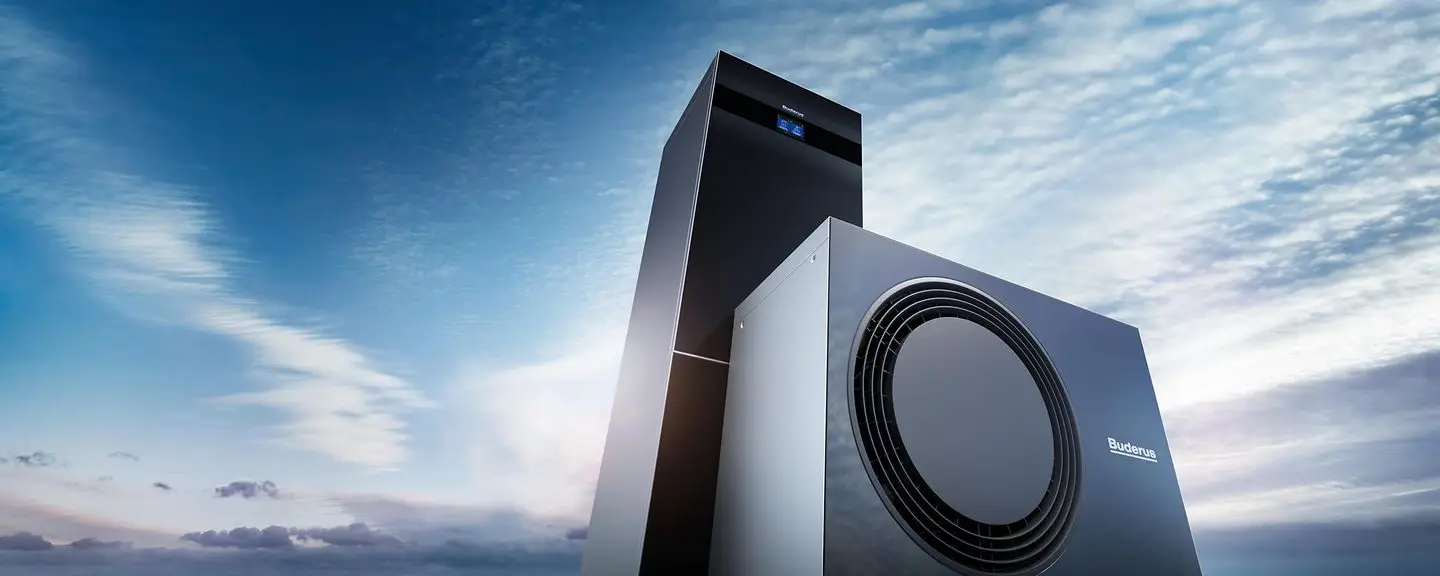Heat Pumps
Economical and ecological heating with a heat pump!
Solutions for the individual client
Heat pumps are the perfect solution for you.
Reduce your building’s operating costs and gain energy independence with a modern heat pump system. By harnessing renewable energy, you can enjoy efficient and reliable heating and cooling all year round while significantly lowering your energy bills. For even greater savings, integrate your heat pump with photovoltaic panels, allowing you to generate your own clean energy and reduce heating costs to a minimum. It’s a smart investment in both comfort and sustainability.
At Voltmax, we offer high-performance heat pumps that ensure maximum comfort, low operating costs, and long-term reliability. Our expert team will assess your home’s specific needs—considering insulation, building size, and heating preferences—to design a customized heat pump system that delivers optimal efficiency. Trust Voltmax to guide you through the process, from consultation to professional installation, ensuring your transition to eco-friendly heating is seamless and hassle-free. Contact us today to find the perfect heat pump solution for your home!

Do you know that...
We cooperate with leading Heat pump manufacturers
We collaborate with leading heat pump manufacturers to provide our customers with the most advanced, energy-efficient, and reliable heating solutions. By partnering with top brands, we ensure high-quality products that guarantee optimal performance, durability, and cost savings. Our cooperation allows us to offer a wide range of Eco-friendly heating solution models tailored to different needs, from residential to commercial applications. With expert installation and full support, we make the switch to sustainable heating easy and hassle-free.
Complete Heat Pump Installation & Support
1
STAGE
Free Consultation and Heating System Audit
Our cooperation begins with a free consultation, during which we will discuss your needs and expectations regarding the heating of your building. Then we will conduct a detailed audit of the current heating system, analyzing energy consumption, thermal insulation and the possibilities of integrating the heat pump with the existing infrastructure. Thanks to this, we are able to propose the most effective solution, adapted to the specifics of your home or company.
Calculating the Heat Demand of the House and Selecting a Heat Pump
Based on the audit results, we precisely calculate the building’s heat demand, taking into account its surface area, number of inhabitants, heat distribution system and local climatic conditions. Selecting the right heat pump is key to ensuring maximum efficiency and optimal operating costs. We support you in choosing the best model that will guarantee thermal comfort all year round.
2
STAGE
3
STAGE
Analysis of Financing Options for Your Investment
We know that investing in a heat pump is a serious financial decision, which is why we will help you find the most beneficial forms of support. We will analyze available subsidies, tax reliefs and financing options, such as installments or leasing. Our team will advise you on how to use the subsidy and help with the formalities, so that you can enjoy modern and ecological heating as soon as possible.
4
STAGE
Professional Installation and Commissioning
Once you have chosen the right solution, we will professionally install your heat pump. Our experienced technicians will carry out the installation to the highest standards, ensuring the system is reliable and operating at maximum efficiency. Once the installation is complete, we will commission the unit, run tests and configure settings to ensure optimum operation. We also offer training in the operation and maintenance of the system, so you can get the most out of it.
Advantages of choosing a Heat pump

Financial savings
When combined with photovoltaic panels, a heat pump becomes the most cost-effective heating solution. By using free solar energy to power the system, you can drastically cut heating expenses, making it significantly cheaper than heating with coal, gas, or wood. This combination not only lowers your energy bills but also provides a sustainable, long-term solution for your home.
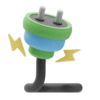
Energy saving
Heat pumps are highly energy-efficient, as they draw most of their energy from renewable sources like air or ground, rather than relying solely on electricity. They consume far less energy than electric heaters or heating mats, making them a cost-effective and eco-friendly solution. This efficiency translates to lower energy bills and reduced home heating costs, ensuring long-term savings and sustainability.

Comfort
Heat pumps provide consistent and uniform heating throughout the year, ensuring optimal thermal comfort in your home. Unlike traditional heating systems, they efficiently regulate indoor temperatures, adapting to seasonal changes for maximum efficiency. Additionally, heat pumps require minimal maintenance and do not produce dust, ash, or residue from fuel storage, making them a cleaner, hassle-free heating solution.
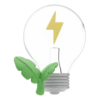
Respect the environment
Heat pumps are an eco-friendly heating solution, as they produce no direct greenhouse gas emissions or pollutants. Unlike traditional heating systems that burn fossil fuels, Eco-friendly heating solution use renewable energy from the air, ground, or water, significantly reducing your carbon footprint. By switching to a heat pump, you contribute to cleaner air and a more sustainable future.
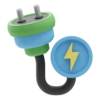
Security
Heat pumps offer a high level of safety compared to traditional heating systems. They do not burn fuel, produce flames, or emit harmful gases, eliminating the risk of carbon monoxide poisoning or explosion. With no need for combustible materials, heat pumps provide a clean, secure, and worry-free heating solution for your home.

Sustainability
Heat pumps are built for longevity, offering greater durability than traditional heating systems. With fewer moving parts and no combustion process, they experience less wear and tear, resulting in lower maintenance needs and a longer lifespan. Investing in a Eco-friendly heating solution means reliable, efficient heating and cooling for years to come.
Turn your bills into savings – leave your contact details and we will prepare a free heat pump quote for you!
Buderus is a well-established brand in the heating industry, known for its high-quality, efficient, and durable heat pumps. Whether for residential or commercial applications, Buderus heat pumps provide an eco-friendly alternative to traditional heating systems, offering optimal performance, low operating costs, and advanced technology.
Types of Buderus Heat Pumps
Air-to-Water Heat Pumps – Ideal for new and existing buildings, these heat pumps extract heat from the air and efficiently transfer it to your heating system. They offer a cost-effective and easy-to-install solution with models like the Logatherm WLW series.
Ground-Source Heat Pumps – Utilizing stable underground temperatures, these heat pumps provide exceptional efficiency and long-term savings. The Logatherm WSW series is designed for maximum performance in well-insulated homes and buildings.
Hybrid Heat Pump Systems – Combining a Eco-friendly heating solution with a conventional heating system, these solutions maximize energy efficiency and adaptability, ensuring optimal heating even in extreme weather conditions.
Key Features of Buderus Heat Pumps
- Energy Efficiency – High COP (Coefficient of Performance) values ensure significant energy savings.
- Smart Control – Many models come with intelligent control systems, allowing remote management via a smartphone or tablet.
- Low Noise Operation – Buderus heat pumps are designed with advanced sound insulation, ensuring quiet operation.
- Compatibility with Solar Energy – These systems can be integrated with photovoltaic panels to further reduce energy costs.
- Durability and Reliability – Built with high-quality components, Buderus Thermal pumps offer long service life and minimal maintenance requirements.
Why Choose Buderus Energy-efficient heating system?
Buderus heat pumps provide an environmentally friendly and cost-effective heating solution, reducing carbon emissions while ensuring year-round comfort. With various models suited to different building types, they are an excellent investment in energy efficiency and sustainability.
Division of Buderus heat pumps
Types of solutions
Air
Air-water heat pumps
Air – Air-water heat pumps
In the case of air-water heat pumps, the lower heat source (and at the same time the heat carrier) is simply air. The fan forces them through the evaporator, where some of the heat energy from the air is captured and transferred to the building’s heating system and hot water.
Models include:
Logatherm WLW186i AR
Logatherm WLW176i AR
Logatherm WLW166i
Logatherm WLW156 MB AR
Logatherm WLW196i IR
Logatherm WLW196i AR
Logatherm WPLS.2
Ground
Glycol-water heat pumps
Geothermal energy – Brine heat pumps
Renewable energy is the energy of the future and heat pumps are the perfect solution to use this free energy efficiently and environmentally to heat our homes. Thanks to them, we protect the natural environment, our portfolio and become more independent from international political and economic conditions.
Brine heat pumps obtain thermal energy from the ground via installation of a lower heat source. It is carried out in two ways: as horizontal or vertical floor heat exchanger. From a depth of 15 m, the ground has a constant temperature of 10°C and is perfect for drilling a well for a probe (vertical ground sensor).
Models include:
Logatherm WSW196i.2/WSW186
Logatherm WPS K-1
Logatherm WPS-1
For hot water
Air source heat pump for heating domestic hot water.
For hot water – Air heat pump for heating domestic hot water.
They efficiently use free energy from the air to prepare hot water. The devices can work with other heating systems and their installation is extremely simple. Plus, they have an added advantage: they can provide pleasant coolness on hot days. You can choose from models operating at temperatures of 5°C and -10°C!
Models include:
Logatherm WPT
Application of heat pumps
– heating of houses, companies and swimming pools
Heat pumps are a modern, energy-saving solution that is used in various types of buildings and installations. Thanks to their high efficiency and ecological operation, they can successfully replace traditional heating systems in single-family homes, commercial properties and when heating water in swimming pools.
Heat pumps for home heating
More and more owners of single-family homes decide to install a energy-efficient heating system as the main source of heating. This system not only provides thermal comfort all year round, but also significantly reduces energy bills compared to gas, oil or electric heating. The thermal pump can work with underfloor heating or traditional radiators, and in the summer it can act as an air conditioner, effectively cooling rooms.
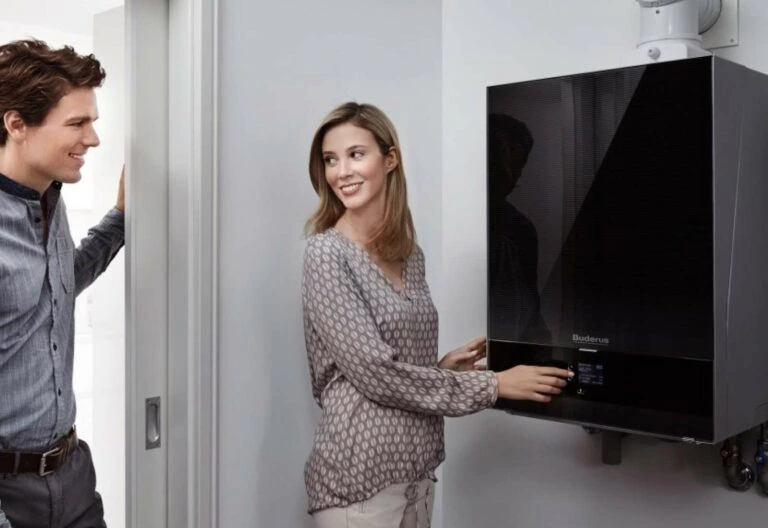
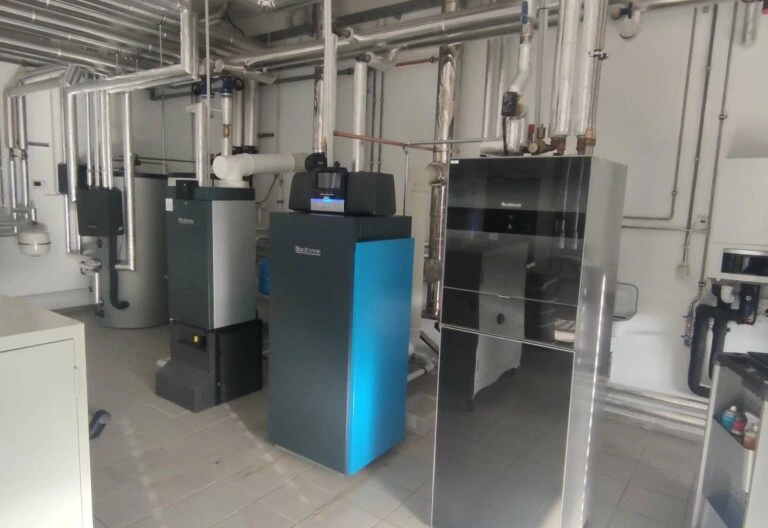
Heat pumps in companies and commercial properties
Heat pumps are an excellent solution for companies, offices, hotels, restaurants and industrial facilities. Thanks to their high energy efficiency, they allow for a significant reduction in the costs of heating large spaces, while meeting rigorous energy efficiency standards. These systems can be used both for heating buildings and for heating domestic hot water, which makes them an ideal solution for the HoReCa industry and production plants.
Heat Pumps for Heating Pools
Heating pool water with a heat pump is one of the most cost-effective solutions. These systems allow you to maintain the optimum water temperature throughout the season, minimizing energy consumption. Energy-efficient heating system for swimming pools can draw energy from the air or the ground, making them an extremely efficient and ecological solution.
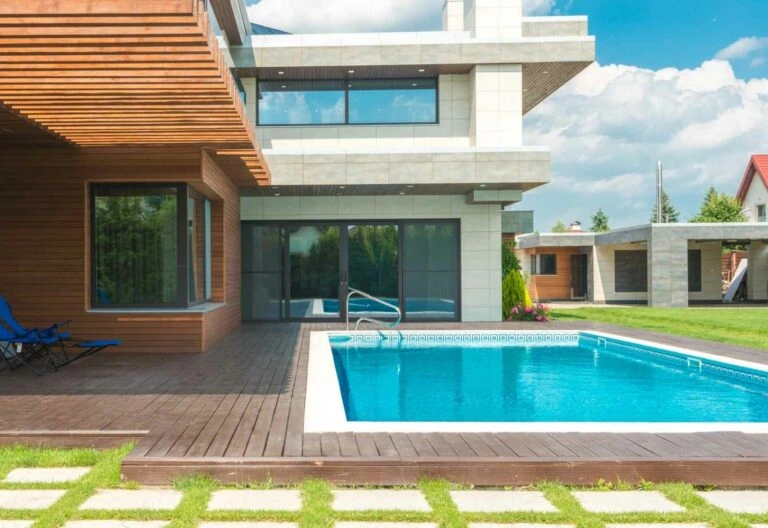
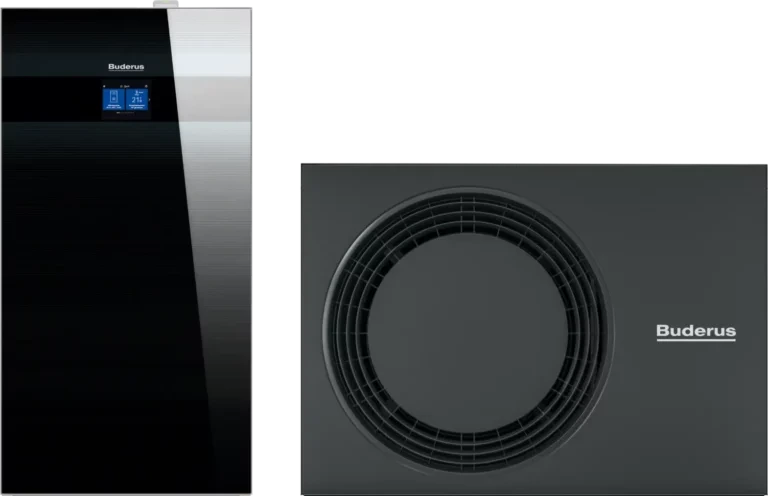
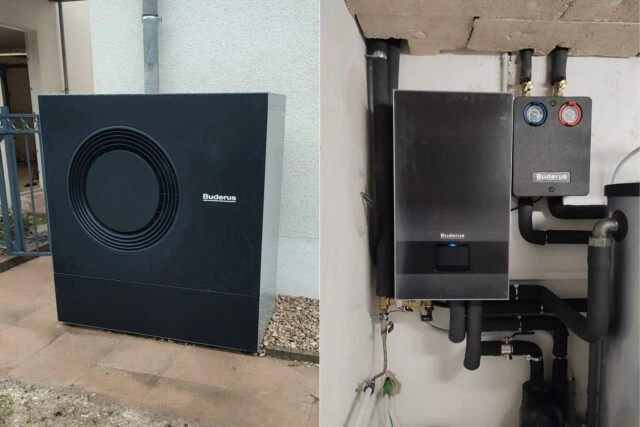
Why is it worth installing a heat pump in your home?
A Thermal pump is a modern and ecological solution that allows for efficient home heating and domestic hot water heating. More and more homeowners are deciding to install it due to its savings, comfort and minimal impact on the environment. Here are the main reasons why it is worth investing in a Energy-efficient heating system:
1. Significant savings on heating
Heat pumps draw energy from the air, ground or water and convert it into heat. Compared to traditional gas, oil or electric boilers, they can reduce heating bills by up to 60-70%.
2. Ecological and sustainable energy source
Heat pumps do not emit exhaust fumes or harmful substances because they do not burn fossil fuels. In combination with a photovoltaic installation, they can operate almost cost-free, using free solar energy.
3. Multifunctionality – heating and cooling
Modern heat pumps can not only heat a house in winter, but also cool it in summer, operating similarly to an air conditioner. This solution provides comfort all year round.
4. Maintenance-free and convenient operation
Unlike solid fuel boilers, a heat pump does not require regular fuel additions or cleaning of the combustion chamber. The system operates fully automatically and can be remotely controlled.
5. Long service life and reliability
A well-selected and installed Thermal pump can operate for up to 20-25 years. This is a solid investment in long-term comfort and savings.
6. Subsidies and tax reliefs
In Luxembourg, various subsidy programs are available to help reduce the cost of purchasing and installing a heat pump. Through state incentives such as PRIMe House, homeowners can receive financial support for switching to energy-efficient heating solutions. Additionally, tax reliefs and financing options may further lower the investment costs. Take advantage of these opportunities to make your home more sustainable and energy-efficient.
7. Increased property value
Houses equipped with modern, energy-efficient heating systems are more attractive on the real estate market, which can increase their value when selling them.
Summary
Investing in a heat pump is a step towards savings, ecology and comfort. Thanks to low operating costs, no exhaust emissions and the possibility of connecting to photovoltaics, it is one of the best solutions for modern and energy-efficient homes.
Frequently Asked Questions (FAQ) - Everything You Need to Know About Heat Pumps
A heat pump uses outside air as a heat source, production is possible even when the outside temperature drops below 0, and we can use the outside air to heat our house or heat water.
Depending on the manufacturer, proper servicing and correct installation, we can assume that on average a heat pump works for about 20 years.
If your system is based on traditional radiators, you do not have to replace them. However, it is worth remembering that with a heat pump, it is most effective to use low-temperature receivers.
A heat pump is multifunctional, when it is cold it will heat the house, and when it is hot it can cool our house, and it will also heat water all year round.
The heat pump is powered by electricity, it is necessary for its start-up and operation, so it is worth equipping yourself with a photovoltaic installation, which will significantly reduce the cost of maintaining the heat pump.
Yes, like any heating device, it needs periodic check-ups to ensure reliable operation.
It is worth insulating your house so that the generated heat does not escape through leaks or through lack of thermal insulation with the environment.
No, a heat pump is fully automated and does not require manual adjustments.
It depends on how much heat you need and how much electricity it will cost.
It depends on individual needs, so it is worth contacting our representative.
COP stands for Coefficient of Performance, which measures a heat pump’s efficiency.
C.H. is an abbreviation for central heating.
C.W.U. is an abbreviation for domestic hot water.
Yes, a heat pump becomes a cooling unit on hot summer days, which, in cooperation with a fan coil, will cool your house.
An air pump is much less invasive in our area, because there are no drillings and we do not have to dig up the plot, which makes the installation much faster and the whole thing generates less costs. An additional advantage is the lack of need for special projects, and the risk of failure is much lower because it contains fewer elements that could increase the risk of failure.
Absolutely, this combination makes your home more energy-independent.
A buffer tank is an additional liquid tank in a hydraulic system, its task is to artificially increase the amount of liquid in the hydraulic system.
No, but reducing system complexity lowers the risk of breakdowns.
Yes, you should include the power of the booster heaters as part of the total available air-to-water heating power.
Small mechanical impurities and air bubbles can cause blockages and problems with obtaining the appropriate mass flow of the heating medium. Separators remove all impurities from the water in the system and are maintenance-free.
There is no such need, a periodic inspection is enough.
Yes, wall heating works efficiently with heat pumps as a low-temperature heat emitter.
No, underfloor heating does not increase dust circulation.
Installing a heat pump takes from 1 to 3 days, depending on the complexity of the project.
Yes, you can use underfloor heating and radiators, but it is necessary to divide the system into two zones because they have individual temperatures.
Such a permit is not required. Only permission from the commune to carry out renovation works.
Yes, even in freezing temperatures, heat pumps function efficiently with backup heating elements.
Yes, but you’ll need a compatible controller to integrate both systems.
Ground-source heat pumps have higher efficiency but require more costly installation.
Typically, manufacturers offer a 5-year warranty.
A compressor can last around 25 years, but neglecting maintenance can shorten its lifespan.
A heat pump consists of an outdoor unit that extracts heat from air, water, or ground, and an indoor unit that distributes heat.
Most heat pumps can heat water up to 75°C.
Yes, but the home must be well-insulated and the pump properly sized.
Compared to electric heating, a heat pump reduces bills by up to 70%, 50% compared to oil heating, and 40% compared to gas heating.
Heat pumps work year-round, while solar collectors depend on sunlight and are less effective in winter.
No, they are suitable for both new and older buildings.
A properly installed ground collector does not damage the garden.
No, but it maximizes efficiency. Radiators can still be used with a heat pump.
The most efficient system is low-temperature heating such as underfloor or wall heating.
The better the insulation, the smaller the heat pump needed, lowering costs.
Modern heat pumps are as quiet as refrigerators.
Standard heat pumps measure around 90 x 60 x 40 cm.
Heat load refers to the amount of energy needed to heat a building, depending on insulation and size.
Glycol in a closed system does not need refilling.
No, heat pumps are safe and do not pose explosion risks.
No, heat pumps do not release harmful emissions.
A monobloc system has all components in the outdoor unit, making installation simpler.
A split system separates the indoor and outdoor units, requiring professional installation and refrigerant charging.
Our consumer and business solutions
You want to know more
Do you have questions about our offer?

